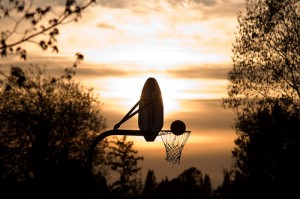One of the most poignant moments in George’s early childhood happened when he was four. It was a late summer’s day, about four months after he had been diagnosed with autism, and I was picking him up from daycare. On nice days the daycare staff took the children out to the playground at the end of the day, and parents would pick them up from there. This was one of those days.
I stood at the fence enclosing the playground, and for a few minutes I watched the kids at play. Five or six children, all around George’s age, lined up for an impromptu little race. Ready, set… GO! And off they went, for just a few yards. George stood by himself under a tree, watching these events shyly.
A sense of sadness tugged at my heartstrings. Although he was surrounded by children, he looked so utterly alone in that moment. The other kids weren’t excluding him, he just didn’t know how to join in.
Because this was so soon after George’s diagnosis, I was still mourning the loss of what I had thought family life would mean. That vision had included childhood birthday parties and Little League baseball teams. And seeing my kid standing there alone, not looking as if he would ever participate in anything – well, it hurt.
As George has navigated his way through nine years of life, I have been heartened to see how well other kids have responded to him. He has this aura about him – this sweet pureness – that seems to attract other children. While many nasty comments have been thrown his way by adults, I have never seen a child being mean to him.
Not once.
I am too realistic – or perhaps too jaded – to believe that this will continue. I have spoken to parents of teenagers with autism, and I have heard speeches given by adults with autism. And with very few exceptions, there is one common thread running through everything I have heard: high school is hell for people with autism. That is when the bullying starts, when kids with special needs get picked on and subjected to humiliation.
If that is the case, though, how do you explain this very cool thing that happened last summer when I was out for a leisurely walk with my family? The boys down the road – 15 or 16 years old – were shooting hoops in their driveway. As we walked by, the ball rolled into the street, and George picked it up. Like a true basketball player, he bounced the ball off his knee, and then threw it towards the hoop. He missed by a mile.
And with no hesitation whatsoever, these teenage kids – you know, the ones who are supposed to be mean to special needs kids – lowered the hoop so that George to join in.
Parents of kids with autism are very fond of talking about how society discriminates against their kids, and to an extent, this is warranted. George and I have both been on the receiving end of stares, rude comments, assumptions and accusations. But these have come from adults.
Maybe a segment of society is starting to get it right, though. There will always be high school bullies, but maybe the upcoming generation is growing up to be more intuitive to the needs of individuals with special needs.
Someone posted this delightful video on Facebook this week. Sit through the annoying ad at the beginning, and then grab a Kleenex and take a look. This is the kind of thing that gives me hope for my child’s future.
High school basketball player passes ball to mentally challenged player on the opposite team
(Photo credit: StuSeeger. This picture has a creative commons attribution license.)











I am sitting here with tears in my eyes. That is such a great story. Yay!
Reading this post gave me goosebumps!
I also dare to hope that the new generation does better than the older generation! Certainly my (almost 17 year old) daughter and her friends are much more aware and sensitive to the needs of others than the girls I went to school with!